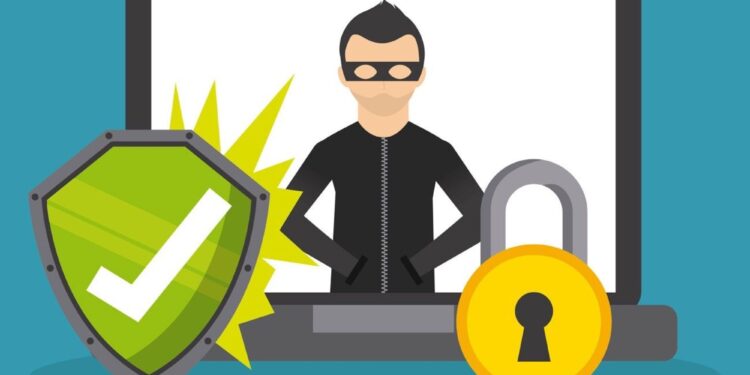In an era where the internet rules the world scape, website security is gaining utmost importance. With a cyberattack carried out every 39 seconds in cyberspace, one cannot be extra careful. A small loop, a little leeway in a website, can pave the way for hackers and malicious actors to enter into your website.
Irrespective of your business’s size, whether big or small, cybersecurity threat looms large over your many years of cumulative hard work. This article aims to walk you through prominent threats that put your website security at risk and ways to protect your website from such untoward threat incidences. Read on to know more!
- Top 5 Security Threats that a Website Faces:
- Phishing: In some phishing instances, a hacker poses as a member of the authority and tries to extricate sensitive and personally identifiable information (PII) such as credit card numbers, passwords, usernames, etc. This practice goes by the name of spear-phishing. Hackers may use website forgery or link manipulation in their atte, pts at gaining information through phishing.
- Data Breaches: Every year, millions of business records are exploited by cybercriminals owing to data breaches. One can refer to a data breach as the security violation caused by an unauthorized individual resulting in confidential information exposure.
- Malware: Short for malicious software, malware is a product of codes designed by hackers to break into confidential information. They are created with the intent to ruin websites or to enter networks in an unauthorized way. The top malware to look out for are WannaCry, NanoCore, CoinMiner, etc.
- Ransomware: Ransomware is another form of malware that encrypts user files, so they become inaccessible to the website’s original owner. The hacker then demands a hefty ransom amount to restore access to files to the original website owner.
- Vulnerabilities posed by IoT (Internet of Things): Commonly found IoT vulnerabilities like weak passwords, compromised data security transfers, unsecured network services give leeway to hackers to lay their traps and siphon off billions of dollars worth of information.
- Top 7 Ways to Protect Your Website From Malicious Intents of Hackers.
- Install Secure Socket Layer (SSL) certificate on your website: SSL affords end-to-end encryption for data transmitted between the website and client’s browser. Buy cheap SSL certificates from SSL2Buy at unbeatable prices with the assurance of quality security for your website. If your website has multiple first-level domains, consider securing them all with a Wildcard SSL certificate available at SSL2Buy.com.
- Pentest or Ethical Hacking: A self-conducted penetration test checks for exploitable vulnerabilities hidden in your website. It exposes the leeways through which hackers can find their way into your organization’s website.
- Install dependable antivirus and anti-spam software: Anti-spam ware blocks the entry of spam into a system, whereas antivirus software prevents, detects, and removes malicious software.
- Keep your website and associated plugins updated: To give your website optimal protection, ensure that your plugins, operating systems, and organization’s website are regularly updated. Hackers are pros at taking advantage of unsecured websites with older software versions installed. If you use a content management system like WordPress, ensure that the CMS and its plugins are regularly updated.
- Ensure web application firewall use: A WAF (Web Application Firewall) refers to an application-based cybersecurity tool crafted to protect websites and applications from HTTP-based malware attacks. Some of the commercially used WAFs are Barracuda WAF, Symantec WAF, Radware Appwall, etc.
- Stay immune from Cross-Site Scripting (XSS) Attacks: Client sided code-injection attacks that run malicious scripts in a web browser are known as cross-site scripting (XSS) attacks. To protect your site from such attacks, use firewalls, sanitize, and validate input data.
- Use robust and reliable passwords: The password should contain an uppercase letter, lowercase letters, numbers, special characters and should be atleast eight characters long.
Conclusion
To sum up, website security is essential for preventing blacklisting by Google and a decrease in rankings. The above article discussed ways of securing your website from cyberattacks and other malicious actors. We highly recommend following the same to stay safe. Let us know in the comments section about your views and opinions on the same.










